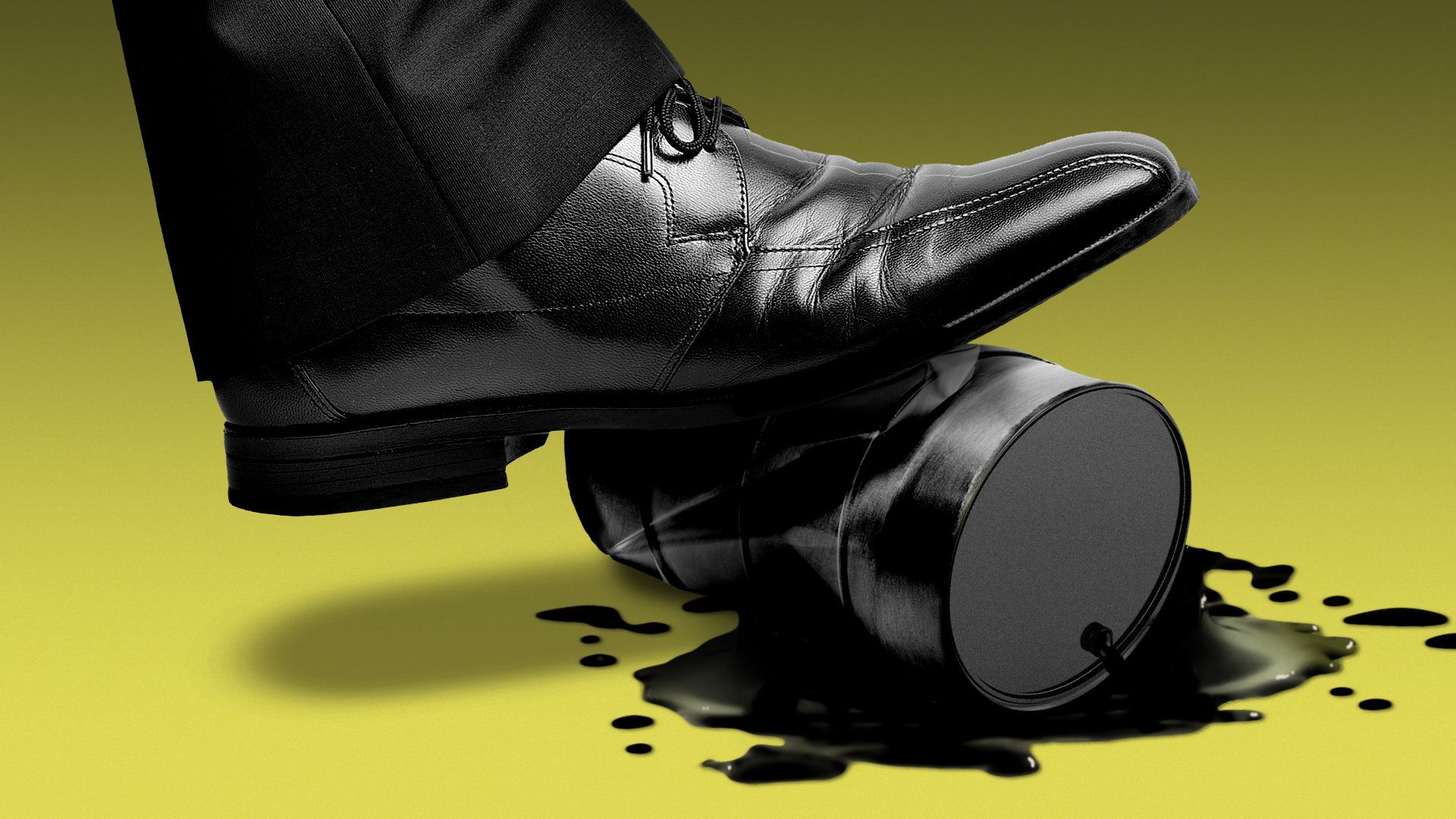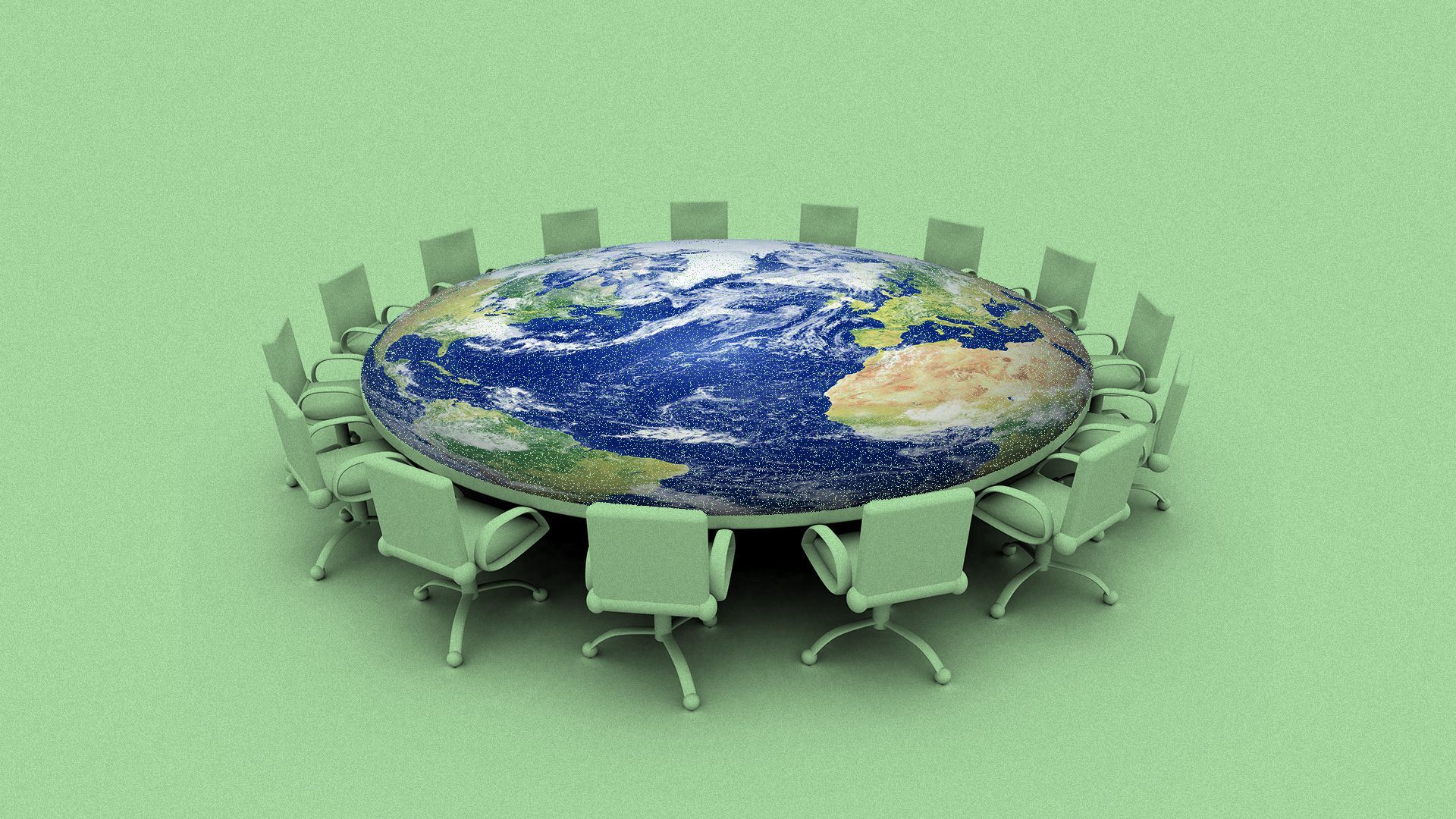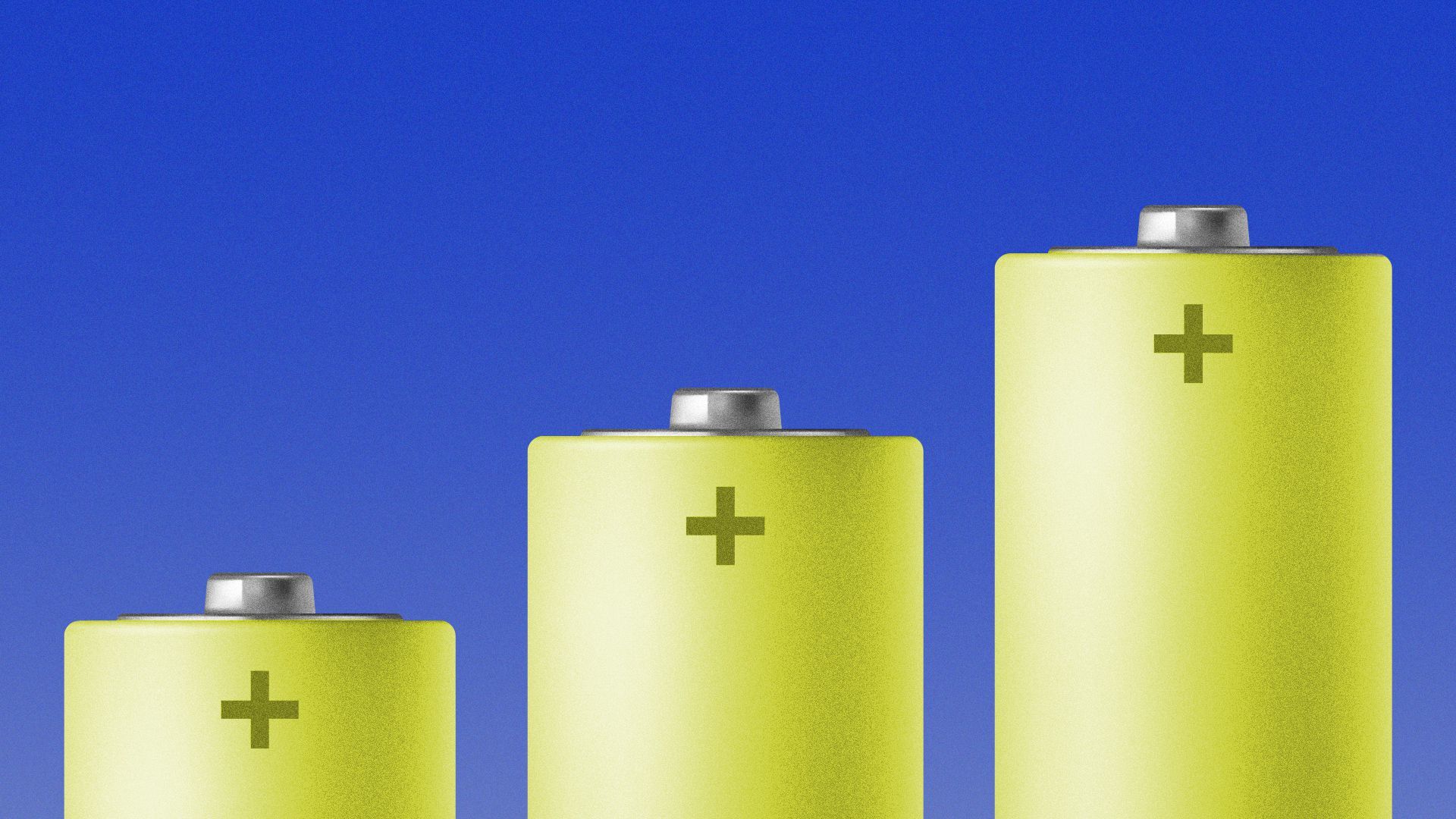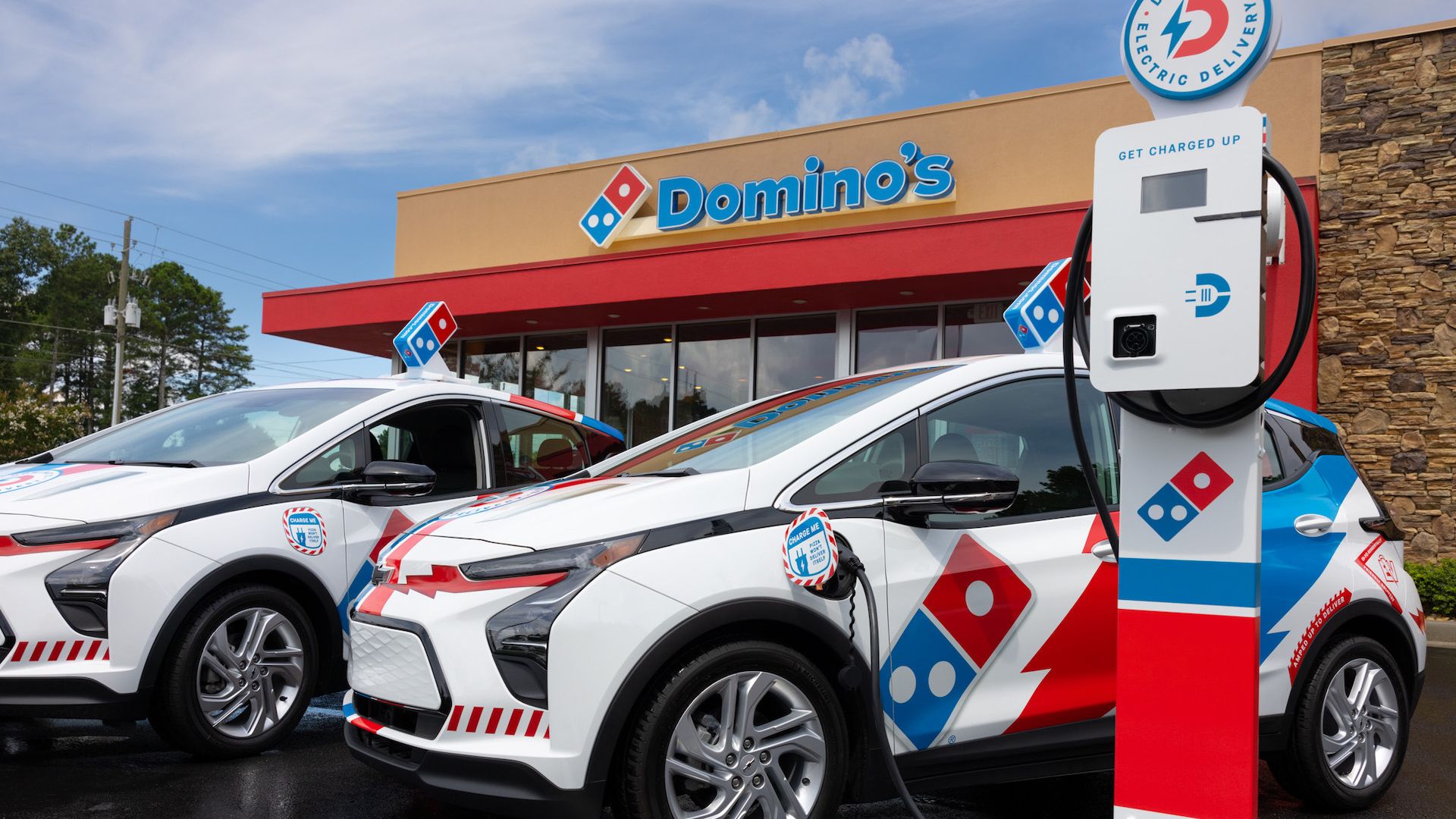| |
| |
| |
| |
| |
| Axios Generate |
| By Ben Geman and Andrew Freedman · Nov 23, 2022 |
| ☕ Good morning! Today's newsletter has a Smart Brevity count of 985 words, 4 minutes. 🥘 We'll be off for Thanksgiving and return to your inboxes Monday. Have a great holiday! 🎶 At this moment in 1978 the great Donna Summer was #1 on the Billboard Hot 100 with this week's final intro tune... |
| |
| |
| 1 big thing: Crunch time for thwarting Russian oil revenues |
 |
|
| Illustration: Shoshana Gordon/Axios |
| |
| An unprecedented, uncertain effort by the U.S. and allies to crimp the Putin regime's revenues while keeping Russian oil flowing into global markets is moving closer to launch, Ben writes. 🏃🏽♀️Catch up fast: The U.S., EU, G7 and Australia hope to thwart Russian access to insurance, brokering, shipping and other services unless barrels are sold under a certain price. The target for beginning to implement the cap is Dec. 5. 🗞️ Driving the news: The Treasury Department yesterday published U.S. guidelines for the initiative. Why it matters: The cap aims to tackle a quandary presented by Russia's attack on Ukraine — how to limit Russia's huge petro-revenues without worsening global economic upheaval. 🤷🏼♂️ What we don't know: Whether it will work and how Russia will respond. - Bloomberg notes Russia's already selling oil at discounted levels, so the cap level the EU is weighing "may have minimal impact on trading."
- But ClearView Energy Partners said that even at an "accommodative" price, "neither Russia nor its OPEC partners seem likely to welcome the emergence of a buyers' cartel."
- They point out that Russian officials "have said Russia will not sell at the cap price, creating the prospect of supply interruptions or shut-ins."
Yes, but: Reuters quotes a senior Treasury Department official downplaying the prospect of Russia stopping exports. "Any action they take to drive up prices would have an impact on their new customers, customers like India and China who they (Russia) want to remain oil customers going forward," the official said. |
    |
| |
| |
| 2. 🦃 A more expensive holiday drive |
 Data: U.S. Energy Information Administration; Note: Price is consumer price at 8 am and includes taxes; Chart: Madison Dong/Axios Visuals Gasoline prices are down sharply since briefly hitting a nationwide average of $5 per gallon in June, but motorists are still facing record Thanksgiving costs, Ben writes. The big picture: While average pump prices heading into the holiday are above the 2012 mark, that's not stopping a busy travel period. - AAA expects nearly 49 million Americans will drive to their destinations this week.
- "Despite higher gas prices, travelers are hitting the road in a big way this holiday, for what is expected to be the third busiest Thanksgiving since 2000," the group said in a release.
|
    |
| |
| |
| 3. Unpacking the cautious return of U.S.-China talks |
 |
|
| Illustration: Aïda Amer/Axios |
| |
| The resumption of U.S.-China climate talks at the COP27 summit is a positive sign for global cooperation on the problem, but it's not clear how each side will follow through at home, Andrew and Axios' Bethany Allen-Ebrahimian report. Why it matters: The global community can't meet its climate targets without stepped-up decarbonization efforts in the U.S. and China, the world's two largest emitters. Driving the news: U.S. climate envoy John Kerry and his Chinese counterpart Xie Zhenhua held "very candid" discussions at the UN climate summit in Egypt, Xie said. They didn't reach a new bilateral agreement, but Xie and Kerry made it clear talks would continue. The big picture: For the U.S., COP27 was a chance to demonstrate the Biden administration's domestic efforts after passing the most far-reaching climate bill in U.S. history. - The U.S. also pushed other nations to commit to making more ambitious emissions cuts.
- The U.S. and China still have work to do together on a cooperative agreement they signed during COP26 in Glasgow last year, particularly on cutting methane emissions and being more transparent about them.
Yes, but: A new report from a Finnish think tank has found that while China's overall carbon emissions are falling, rising energy demand is likely to slow China's progress toward its decarbonization goals. Read the whole story |
    |
| |
| |
| A message from Axios |
| Attention performance advertisers |
| |
 |
| |
| Nearly 60% of U.S. adults subscribe to email newsletters, and we reach the hardest readers to access. Find out how our performance-based approach can help you reach our valuable audience of affluent and active subscribers. Want to learn more? Let's chat! |
| |
| |
| 4. The U.S. battery surge gets $3B larger |
 |
|
| Illustration: Gabriella Turrisi/Axios |
| |
| Another one! South Korea's LG Chem has a deal with Tennessee officials to build a large factory to produce EV battery components called cathode materials, Ben writes. Why it matters: The $3 billion-plus investment is the latest in a suite of plans by battery and materials companies, often working with automakers, that together are building a U.S. EV supply chain. Driving the news: LG Chem plans to produce 120,000 tons of cathode material annually at the site by 2027 "to power batteries in 1.2 million pure electric vehicles with a range of 310 miles...per charge." Construction in Clarksville — about 50 miles outside Nashville — is slated to start early next year, with mass production starting in the second half of 2025, LG said yesterday. The intrigue: The new climate law is one force driving investment due to strict rules on which EVs qualify for consumer purchase subsidies. - It requires sourcing batteries and materials in the U.S. or from free-trade partners and bars products from China.
- LG's announcement nods at this, saying the plant enables them to "proactively address the changing dynamics of the global battery material market" and legislation such as the new law.
Yes, but: The FT has a good look at how automakers want leeway: - "Ford, Stellantis and Volkswagen are among the carmakers asking regulators to establish a threshold allowing a small amount of Chinese content in batteries."
|
    |
| |
| |
| 5. Domino's delivery is starting to go electric |
 |
|
| Photo courtesy of Domino's |
| |
| There's a small but growing chance that your next Domino's order will arrive via a Chevy Bolt electric car, Ben writes. Driving the news: The pizza chain said over 100 of the custom-branded models are on the road, growing to 855 by the end of 2023. Why it matters: Domino's said it will be the "largest electric pizza delivery fleet in the country." And while it's not that many cars (yet), it's another reminder that corporate fleets are a key early driver of EV adoption. |
    |
| |
| |
| 6. 💬 Quote of the day |
| "Our wind turbine makers need to be reasonably profitable. But right now we are not." — Jochen Eickholt, CEO of Siemens Gamesa, via the New York TimesWhy it matters: The in-depth NYT piece explores the struggles of turbine manufacturers and how that could hinder the pace of deployment. |
    |
| |
| |
| A message from Axios |
| Attention performance advertisers |
| |
 |
| |
| Nearly 60% of U.S. adults subscribe to email newsletters, and we reach the hardest readers to access. Find out how our performance-based approach can help you reach our valuable audience of affluent and active subscribers. Want to learn more? Let's chat! |
| |
| 📬 Did a friend send you this newsletter? Welcome, please sign up. 🙏Thanks to Mickey Meece and David Nather for edits to today's newsletter. We'll see you Monday! |
 | | Your personal policy analyst is here. | | |









No comments:
Post a Comment